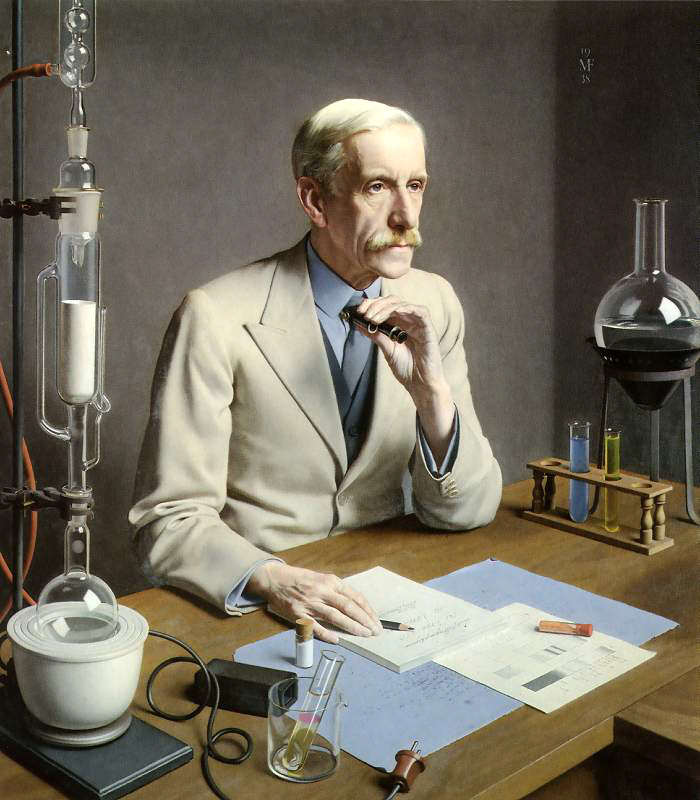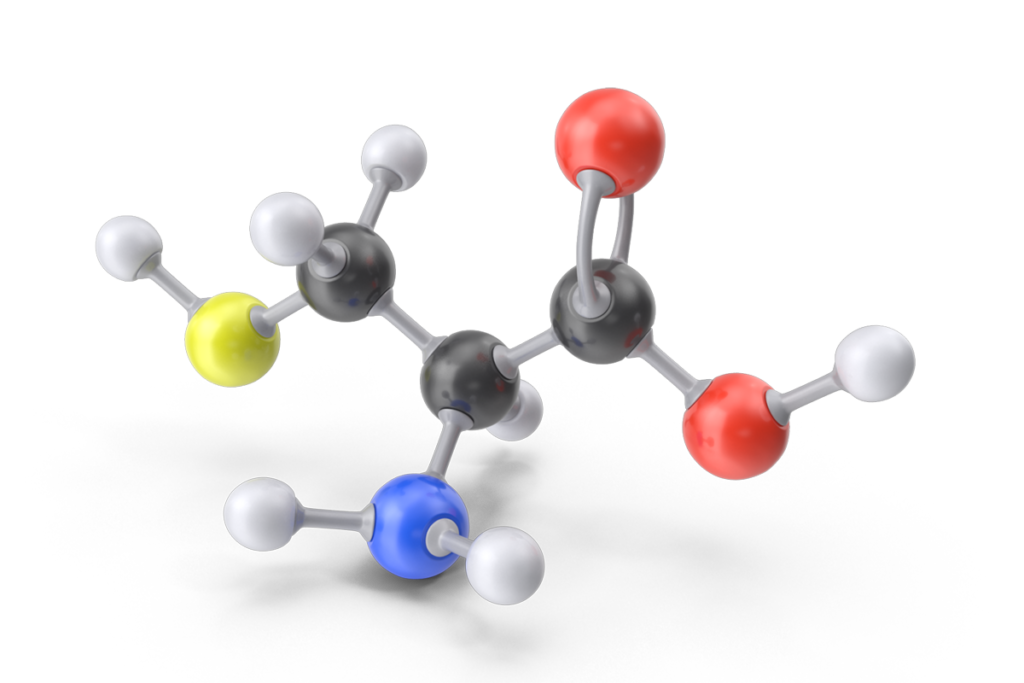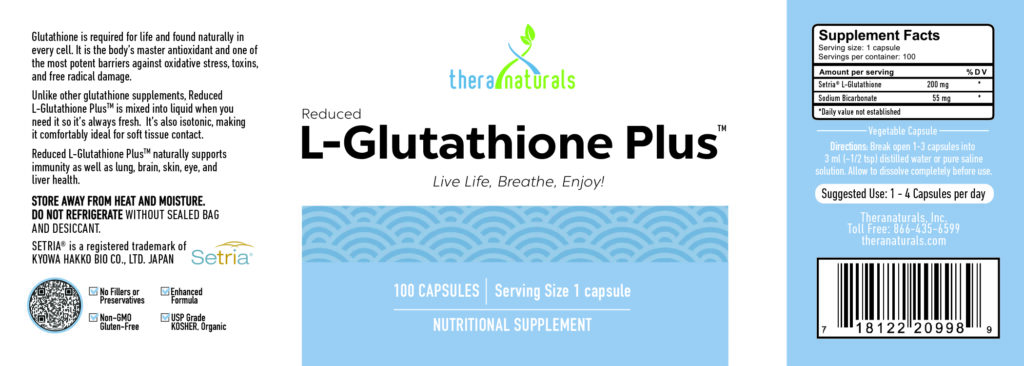What is Glutathione?
Glutathione (GSH) is a defensive reagent against the action of toxic xenobiotics (drugs, pollutants, carcinogens). As a prototype antioxidant, it is involved in cell protection from the noxious effect of excess oxidant stress. (1) Glutathione is a tripeptide composed of three amino acids: glycine, cysteine, and glutamic acid. It is produced naturally in the liver and has many functions in the body.
Glutathione occurs naturally in plants, animals, fungi and bacteria. Some of the best foods containing high concentrations of glutathione are mushrooms, spinach, okra, turmeric, asparagus, avocados and other sulfur-containing foods. It is also available as a supplement.
Glutathione is an important antioxidant, protecting your body’s cells from damage from free radicals and from pollutants like drugs. It is vital to the health of each cell, and a healthy amount of glutathione is beneficial for the creation of new cells and tissue. (2)

History
In 1888 J. de Rey-Paihade discovered a new substance found in extracts of yeast and many animal tissues (beef skeletal muscle and liver, fish skeletal muscle, lamb small intestine, and sheep brain) and in fresh egg white. Rey-Paihade named this substance Philothion meaning “love and sulfur” in Greek. F. Gowland Hopkins did further work on the substance in 1921. He thought it was a dipeptide with two components: Cysteine and Glutamate. He named it Glutathione to honor the original name. Later, in 1927, George Hunter and Blythe Alfred Eagles attempted to reproduce Hopkins’ work and discovered that something wasn’t adding up. Their tests determined that Hopkins’s original findings were not accurate. Troubled by this discovery, Hopkins did further work and verified that Hunter and Eagles were right. He proposed that Glutathione was, in fact, a tripeptide composed of Cysteine, Glutamate, and Glycine. This proposal was supported subsequently by other scientists by 1930. Since then, processes for isolating and synthesizing glutathione with extraordinary purity have been perfected. (3)

In January 2005 4 scientists, Clark Bishop, Valerie M Hudson, Sterling C. Hilton and Cathleen Wilde, did a study together of the effects of inhaled buffered reduced glutathione on patients with Cystic Fibrosis with promising results. (14) In November 2010 Bishop, Hudson and Hilton another placebo-controlled, double-blind, randomized study was conducted on pediatric Cystic Fibrosis patients in partnership with Italian M.D. Alfredo Visca. (15) Patients were given three doses of glutathione or placebo orally each day over 6 months and tracked. Significant results were found in height percentile, weight percentile, BMI percentile and fecal calprotectin, indicating statistically significant improvement. These are interesting results because children with cystic fibrosis often suffer from growth impediment, so improvements in these areas suggest possible application for treatment of the condition.
The person responsible for formulating the glutathione given to the subjects of these studies was Dr. Wes Parish. His formulation is now known as L-glutathione Plus which is sold exclusively by his company, Theranaturals. Now run by his son, Michael Parish, Theranaturals continues to innovate and deliver the purest, most effective formulations of glutathione and other products. One such innovation is GSH-Curc which is a formulation of Glutathione specifically for Cystic Fibrosis patients only available at Theranaturals.
Eventually other doctors began looking at glutathione and its potential application for conditions such as Alzheimer’s, Parkinson’s Disease, strokes, autoimmune disease, autism as well as recent flu-like respiratory diseases. There is also evidence that Glutathione can elasticize scar tissue, which is particularly interesting to COPD patients who develop inelastic scar tissue in the lungs reducing their ability to absorb oxygen. Theoretically, Glutathione may be effective against any condition involving an oxidation reaction in the body.
Today, Theranaturals has sold over 40,000 bottles of glutathione to customers around the world and are still going strong. Our goal is to use our background in science and chemical formulation to bring health to as many people as possible.
What is it and what does it do in cells?
Glutathione is a tripeptide composed of glycine, glutamate and cysteine. For those unfamiliar with peptides, they are a short chain of amino acids. If you’re not familiar with amino acids, they are organic chemical molecules that are the basic building blocks of life. In very short chains of two or three, they form peptides. Longer chains of amino acids form proteins. Every cell in the human body contains proteins, peptides and amino acids as they are necessary for the creation and repair of cells, and by extension, tissues. A tripeptide is a chain of three amino acids.

Glutathione is produced in the liver and occurs naturally in foods high in sulfur. Certain mushrooms, okra, spinach and avocados contain high levels. Unfortunately, the body doesn’t absorb dietary glutathione well. Developments have been made to create glutathione supplements specifically designed to absorb well.
Glutathione has many beneficial functions such as reducing oxidative stress and protecting cells from free radicals. A free radical is any molecule capable of independent existence that contains an unpaired electron in an atomic orbital. The presence of an unpaired electron results in certain common properties that are shared by most radicals. Many radicals are unstable and highly reactive. They can either donate an electron to or accept an electron from other molecules, therefore behaving as oxidants or reductants. (4) Harmful free radicals and oxidants react with the molecules in your body and can damage cells, DNA and cause inflammation.
Indicated uses
- As we mentioned, glutathione can reduce oxidative stress.
- May help reduce psoriasis (6)
- Reduces cell damage in alcoholic and nonalcoholic fatty liver disease (7)
- Reduces insulin resistance in aging people (8)
- May reduce symptoms of Parkinson’s Disease (9)
- May help fight autoimmune disease (10)
- May reduce respiratory disease symptoms (11)
- Eliminates poisons such as drugs and pollutants from our bodies. (12) (13)
Side effects
Side effects of glutathione supplementation may include abdominal cramps, bloating, breathing difficulty, or allergic reactions such as rash. These symptoms are typically associated with aggressive dosing. Your doctor should be consulted to determine appropriate use.
In some cases, glutathione is too effective. It is not recommended to those undergoing certain cancer treatments such as chemotherapy because the antioxidant qualities may counteract the chemo treatments, making them less effective.
Does it work?
Does it work? Yes! While there have been many studies with positive results (as cited in this article) on glutathione and its effects on various diseases and conditions, it has not been conclusively proven effective, nor evaluated by the FDA, with the exception of a study of its effectiveness treating weight loss in AIDS patients. Anecdotally, customers have had great success and many doctors recommend and prescribe glutathione to their patients.
How to know which Glutathione is best?
Glutathione is not recommended when compounded with other drugs or supplements, so it is very important to find an oral glutathione that is as pure as possible, and as well-absorbed as possible. There has been some controversy over glutathione’s effectiveness when taken orally as it must remain intact until reaching the gut for absorption, but these concerns are unfounded. Our oral glutathione has been shown effective in multiple studies and is designed to reach its target with its potency intact.
Some doctors recommend injection or nebulized glutathione, both of which have their uses. Nebulization is great for lung conditions and injection is good for conditions that require a sudden spike of glutathione, whereas gut-related conditions requiring more gradual, sustained delivery are best treated orally. Consult with your physician to identify the best treatment for your condition.

Where can I get it?
Glutathione is available from many supplement manufacturers, but we recommend getting yours from the original provider of the best quality glutathione in terms of purity and absorption on the market–www.theranaturals.com. Most supplement companies are distributors of products sourced overseas, which makes quality control and verification of ingredients nigh impossible. Theranaturals glutathione is manufactured in the United States by scientists that have been in the business for decades, and have a personal interest in the quality of the products we sell.
For more information, check out our products and contact us with your questions. We want you to know you’re getting the best.
Sources
- Pompella A, Visvikis A, Paolicchi A, De Tata V, Casini AF (October 2003). “The changing faces of glutathione, a cellular protagonist”. Biochemical Pharmacology. 66 (8): 1499–1503. doi:10.1016/S0006-2952(03)00504-5. PMID 14555227.
- https://www.webmd.com/diet/health-benefits-glutathione
- Amer M. Alanazi, … Abdullah A. Al-Badr, in Profiles of Drug Substances, Excipients and Related Methodology, 2015
- V. Lobo, A. Patil, A. Phatak, and N. Chandra. “Free radicals, antioxidants and functional foods: “Impact on human health.” Pharmacognosy Review
- https://www.healthline.com/health/glutathione-benefits
- Prussick R, Prussick L, Gutman J. Psoriasis Improvement in Patients Using Glutathione-enhancing, Nondenatured Whey Protein Isolate: A Pilot Study. J Clin Aesthet Dermatol. 2013 Oct;6(10):23-6. PMID: 24155989; PMCID: PMC3805302.
- Dentico P, Volpe A, Buongiorno R, Grattagliano I, Altomare E, Tantimonaco G, Scotto G, Sacco R, Schiraldi O. Il glutatione nella terapia delle epatopatie croniche steatosiche [Glutathione in the treatment of chronic fatty liver diseases]. Recenti Prog Med. 1995 Jul-Aug;86(7-8):290-3. Italian. PMID: 7569285.
- Dan Nguyen, Susan L. Samson, Vasumathi T. Reddy, Erica V. Gonzalez and Rajagopal V. Sekhar. “Impaired mitochondrial fatty acid oxidation and insulin resistance in aging: novel protective role of glutathione.” John Wiley & Sons and The Anatomical Society. https://onlinelibrary.wiley.com/doi/pdf/10.1111/acel.12073
- Effect of Glutathione Infusion on Leg Arterial Circulation, Cutaneous Microcirculation, and Pain-Free Walking Distance in Patients With Peripheral Obstructive Arterial Disease: A Randomized, Double-Blind, Placebo-Controlled Trial
Arosio, Enrico et al.
Mayo Clinic Proceedings, Volume 77, Issue 8, 754 – 759 - Perricone C, De Carolis C, Perricone R. Glutathione: a key player in autoimmunity. Autoimmun Rev. 2009 Jul;8(8):697-701. doi: 10.1016/j.autrev.2009.02.020. Epub 2009 Feb 13. PMID: 19393193.
- Kerksick C, Willoughby D. The antioxidant role of glutathione and N-acetyl-cysteine supplements and exercise-induced oxidative stress. J Int Soc Sports Nutr. 2005 Dec 9;2(2):38-44. doi: 10.1186/1550-2783-2-2-38. PMID: 18500954; PMCID: PMC2129149.
- Farhat Z, Browne RW, Bonner MR, Tian L, Deng F, Swanson M, Mu L. How do glutathione antioxidant enzymes and total antioxidant status respond to air pollution exposure? Environ Int. 2018 Mar;112:287-293. doi: 10.1016/j.envint.2017.12.033. Epub 2018 Jan 8. PMID: 29324239; PMCID: PMC5899033.
- Pizzorno J. Glutathione! Integr Med (Encinitas). 2014 Feb;13(1):8-12. PMID: 26770075; PMCID: PMC4684116.
- A Pilot Study: Buffered Reduced Glutathione on the Clinical Status of Patients With Cystic Fibrosis Chest 2005;127;308-317, DOI 10.1378/chest.127.1.308
- https://www.uvicf.org/researchnewsite/glutathionenewsite/ViscaTrial_Data_and_SupplementaryMaterial.html
